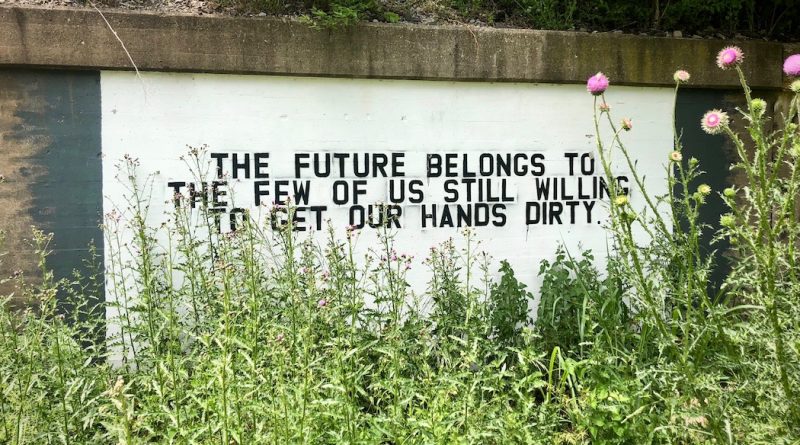Spotlight On Sustainability: Faculty empower students to take action (Part 2 of 2)
Kaitlin Gawkins
Online Editor-in-chief
Sustainability plays a major role in UD’s Marianist Catholic mission. The Hanley Sustainability Institute, which was featured in part one of this series, is a champion for bringing UD’s efforts in sustainability to the world scene. However, it’s important to note that sustainability at this University is not a new notion, rather it’s at the very heart of UD’s founding.
As stated on the “Energy and Sustainability” page of UD’s website, “Our founders planted orchards, farmed the surrounding land for their daily food and constructed the first few buildings from materials found locally. The concept of recycle, reuse and conserve is ingrained in our faith, our teachings and our heritage.”

One professor at the University who is familiar with this heritage and who came to UD 25 years ago with the dedication to live it out more fully is Dr. Carl Friese of the environmental biology department.
Dr. Friese started his career as a field ecologist. When an accident caused him to have health problems, he shifted his focus toward environmental education, a cause which he believes improves the outlook of the future of our planet. He played a major role in the conception of the environmental biology major and remains a dedicated lecturer, teaching Environmental Ecology and Sustainable Biosphere.

In Sustainable Biosphere, Honors students started off with small projects working with the Sustainability Club. These topics included why the University should use fluorescent rather than incandescent bulbs and why UD should change to low flow shower heads. Both ideas were implemented into the campus plan.
After those first couple of successes, they decided to think bigger. Dr. Friese explained the high point of the class was when his students created a blueprint for an entire building dedicated to sustainable living and learning that boasted apple trees, a green roof, environmental education labs and more. It was to be named after Sister Dorothy Stag, a Dayton-born environmentalist who was assassinated for her efforts to protect the Brazilian rainforest from depletion via agriculture.
The sustainable complex was accepted into the master plan for UD’s future, but it was dropped due to extraneous reasons.

Dr. Friese mentioned in his classes that he tries to avoid the “doom and gloom” approach of teaching about the environment. Instead, he emphasizes what we can do to reduce our ecological footprint and create a brighter future for ourselves and the planet.
He remains optimistic for many reasons, one of them being that he works at a university filled with creative, open-minded students who are willing to step out of the box in which they are classically trained in order to work together to approach the topic of sustainability from a multidisciplinary perspective.
“The college setting alone is unique because you have a group of young people who are all passionate about something who have a lot of energy to come together to get a project done,” Friese said.

Steve Kendig, the executive director of Energy Utilization & Environmental Sustainability at UD, agrees with this sentiment and hopes in the future we can continue to challenge ourselves to go places originally thought impossible.
So what do we have in store?
For Kendig, the next step in sustainability is to develop a climate action plan to systematically reduce or eliminate UD’s carbon emissions. In addition, he hopes to continue working on communication and education of faculty, staff and students on the sustainability programming that is currently implemented.

When asked to comment on the rumor that UD has become lax on its commitment to recycling, he insisted this is “not true at all.” In fact, he went on to explain that UD partners with Rumpke to recycle and is “currently working on a feasibility study to do onsite composting for the whole campus.”
This diverse group of passionate, creative and like-minded people makes it clear that the future of sustainability at UD and in the world is in our hands. It’s these small steps that will lead to the larger reforms, which will enable us to respectfully live in our “common home.”

To read part one of this article series, click here.
Photos courtesy of Kaitlin Gawkins and Marigrace Moses.

